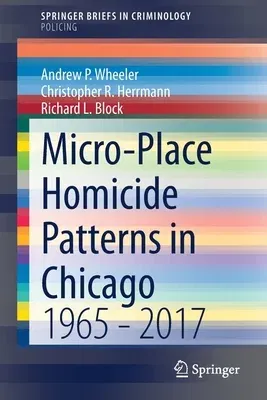Andrew P Wheeler
(Author)Micro-Place Homicide Patterns in Chicago: 1965 - 2017 (2021)Paperback - 2021, 11 December 2020

Qty
1
Turbo
Ships in 2 - 3 days
In Stock
Free Delivery
Cash on Delivery
15 Days
Free Returns
Secure Checkout

Part of Series
Springerbriefs in Criminology
Part of Series
Springerbriefs in Policing
Print Length
75 pages
Language
English
Publisher
Springer
Date Published
11 Dec 2020
ISBN-10
303061445X
ISBN-13
9783030614454
Description
Product Details
Book Edition:
2021
Book Format:
Paperback
Country of Origin:
NL
Date Published:
11 December 2020
Dimensions:
23.39 x
15.6 x
0.46 cm
ISBN-10:
303061445X
ISBN-13:
9783030614454
Language:
English
Location:
Cham
Pages:
75
Publisher:
Weight:
136.08 gm